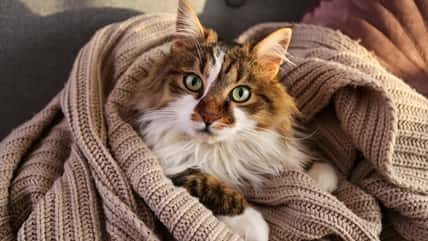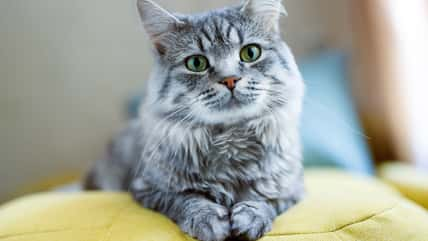African Penguins Can Distinguish One Another By Their Polka Dot Chest Feathers

It seems like it would be hard for penguins to tell each other apart when they’re nesting in huge colonies since they all have the same black-and-white plumage. But at least one species of the birds was found to detect their mate through their pattern of black polka dots.
African penguins (Spheniscus demersus) appeared to recognize their mates by their unique chest feathers in a series of experiments.
The ability to identify individuals using visual clues was thought to be difficult for animals to do, but the findings reveal that African penguins are more intelligent than previously believed.
“Given how goofy penguins can seem—almost stumbling over their feet as they walk, for example—the birds may not seem like they are all that bright,” said Luigi Baciadonna, the lead author of the study and a psychologist from the University of Turin.
“But we showed…that actually, they are quite complicated and complex. They’re also clever.”
African penguins inhabit the rocky coasts of South Africa, Namibia, and other islands nearby. They are just over two feet tall and weigh an average of seven pounds. The birds have white chest feathers and black feathers on their backs.
When African penguins are about three to five months old, they grow some black feathers on their chests in the shape of polka dots. After molting, the feathers grow back in the same places every year.
The penguins mate for life, but they nest in large colonies, so it was a mystery as to how they were able to identify their partners. The research team theorized that the chest feathers could play a role in the identification process.
They tested this hypothesis by studying 12 African penguins at Zoomarine Italia, a zoo and marine park near Rome.

Sign up for Chip Chick’s newsletter and get stories like this delivered to your inbox.
The team built a small, wooden enclosure with an open top and walls that were tall enough to prevent the penguins from peeking over the top. They guided one penguin at a time into the pen and conducted a series of experiments.
For one of the tests, they taped two life-size pictures of other African penguins to the wall of the enclosure. One photo portrayed a random member of the colony, while the other depicted the test subject’s mate.
The researchers recorded the bird’s interactions with the images, noting how long they spent examining each one.
The penguins spent about 23 seconds longer, on average, staring at the photo of their mate. They also stood next to the image of their partner for twice as long.
This suggested that the birds were capable of recognizing their mates, but it didn’t prove that the spots were what helped them make the identification.
So, they covered the heads of the birds in the photos. That way, only the speckled bodies could be seen. The penguins still hovered near their partner’s picture.
In another experiment, the researchers hung up two photos of the bird’s mate. They digitally removed the spots in one of the images. Again, the penguin spent more time next to the photo with the dots.
Finally, the researchers displayed two photos of penguins. One of them was the test subject’s mate, and the other was of a random penguin from the colony.
Both of them had their spots digitally removed. The penguins did not seem to recognize their partners. They spent about the same amount of time near each photo.
Overall, the results indicate that African penguins recognize their partners’ unique polka dot patterns, contributing to our understanding of animal communication.
The study was published in 2024 in the journal Animal Behavior.
More About:Animals





